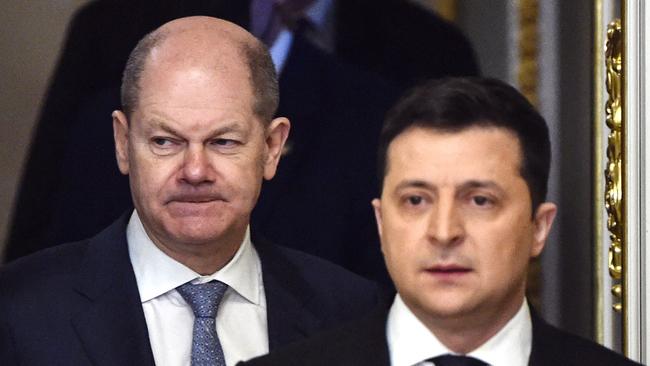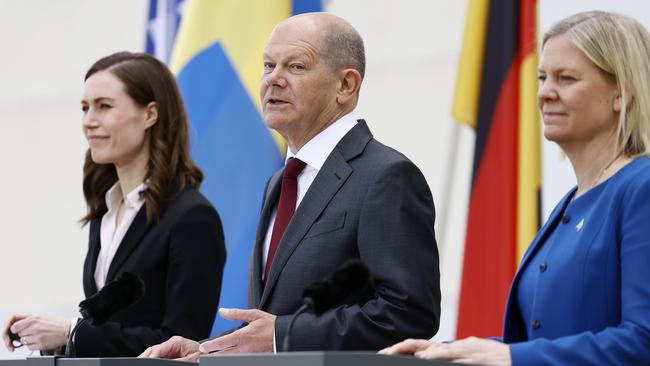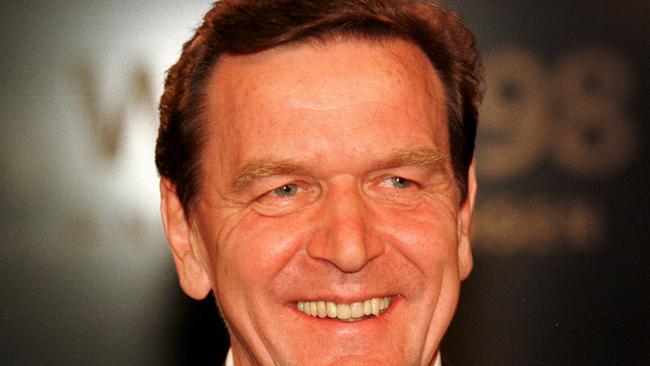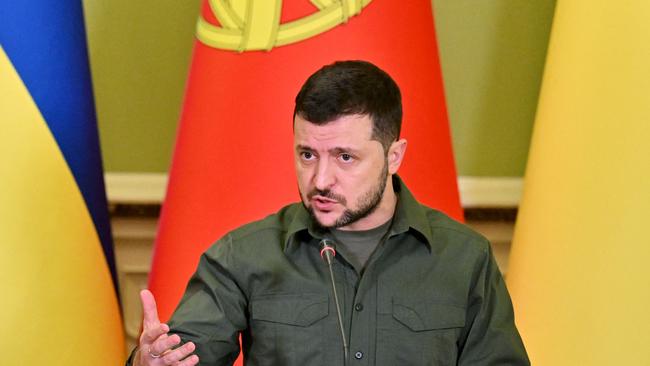Let Germany lead the rebuilding of Ukraine

Scholz’s leadership is marked by foot dragging at crucial moments in the Russian invasion. Day and night artillery barrages are flattening eastern Ukraine. Yet Germany supplies weapons only when under maximum pressure. It tries to sidestep the most effective energy sanctions against Moscow. Scholz continues to think that a solidarity visit to Kyiv would be a pointless publicity stunt. Accelerating Ukrainian membership of the European Union, or actively looking for alternative ways of blocking Moscow’s westward incursions, is regarded as too difficult.

The core problem seems to be that Scholz, who at the outset of the Ukrainian war had announced with some fanfare the need for a sea change in German policy, is asking the wrong questions. At a Catholic conference this week he sat on a podium and asked the audience whether we should be fighting violence with violence. That was typically one of the talking points raised in German conscientious objection tribunals in the Cold War to test whether a candidate for military exemption was trying to swing the lead. It was a sophomoric question and not the issue of the hour. Which is: how does the West stop Putin’s attempts to tear up the European security order? What tools are available? How does the alliance act when a non-member is attacked?
Scholz ducks and weaves because he lacks the confidence to help shape Nato policy. Instead he is in a state of drift. Initially Ukraine was risibly offered 5,000 helmets by Germany. Then Scholz came up with his impressive-sounding sea-change - Zeitenwende - speech, offering an extra euros 100 billion for Germany’s defence. It turned out the sum was actually a way of meeting its long-neglected Nato commitment to spend 2 per cent of its GDP on defence over the next five years. Other pledges followed and fell short. Germany promised to backfill Poland’s inventories after Warsaw sent tanks to Ukraine, but according to President Duda failed to deliver. Some armour may be coming after training of Ukrainian crews but only deeper into the summer. Light defensive weaponry has made its way into Ukrainian hands but the impression is that Scholz is worried Ukraine will escalate the conflict by firing into Russian territory. And he is worried, it seems, about the reputational damage of German panzers again going head to head with the Russians.

All this goes to show that Scholz has not freed himself from the legacy of the former chancellor Gerhard Schroder. Like Schroder, whose father died as a private in the pioneer corps retreating from Russia, he has long agreed with the premise that Russian energy imports were a way of guaranteeing Putin’s good behaviour. Like Schroder he saw maintaining good relations with Moscow as a strategic imperative. Though they come from different generations, both were Young Socialists at a time when American sabre-rattling was seen as more destabilising than what Russia did in its backyard. This view was shared by many Germans but is now under challenge from conservative foreign policy thinkers like Norbert Rottgen who in an impressive new book takes both his former party leader Angela Merkel and Scholz to task. “We outsourced our energy to Russia, our growth market to China, our security to the US,” he writes. It was the German duty to reclaim its sense of agency. “If we don’t defend it, we will lose it.”
Instead of trying to overcome German anxiety about being involved in (another) shooting war, the priority should be in getting Berlin to think more deeply about rebuilding post-war Ukraine. Better surely to lean on Scholz’s previous experience as finance minister than on his patchy grasp of the Donbas battlefield. And build on a positive consensus about the German post-war experience of the Marshall Plan in stabilising the economy, constructing modern state institutions and creating security. It won’t be easy. Estimates suggest at least dollars 600 billion will be needed; there is no idea yet of how the war will end, whether Ukraine will be partitioned, whether Russia tries to manipulate a fake ceasefire.
But Scholz will have a chance to exhibit some toughness in dealing with Putin. One open question will be whether the billions of dollars of oligarchical and Russian state assets frozen under sanctions can be confiscated and turned into a kind of reparations fund for Ukraine. Volodymyr Zelensky, speaking to a Davos audience, made a powerful point: “If the aggressor loses everything, then it deprives him of his motivation to start [another] war. Values must matter when global markets are being destabilised.”

This will be a legal nightmare, one demanding financial expertise and a great deal of stubbornness: let Germany work on the options now rather than live in naive expectation of it becoming a decisive arms supplier for Ukraine. We have discovered already that given the years of German under-investment in defence, counting on its weapons is like squeezing blood out of a stone. Instead of guns and guts, better by far that Berlin concentrates on being an enthusiastic part of a western masterplan to turn post-war Ukraine into a modern, resilient state rather than Putin’s satellite.
The Times







As a young Marxist student Olaf Scholz declared himself to be a conscientious objector and was allowed to work in a care home rather than carry out his military service. Now, as a moderate Social Democrat German chancellor, he opposes Vladimir Putin’s war on Ukraine but is reluctant to give Kyiv the full means to fight back. The likely result is that when the dust settles, Germany will be seen as one of the war’s losers.